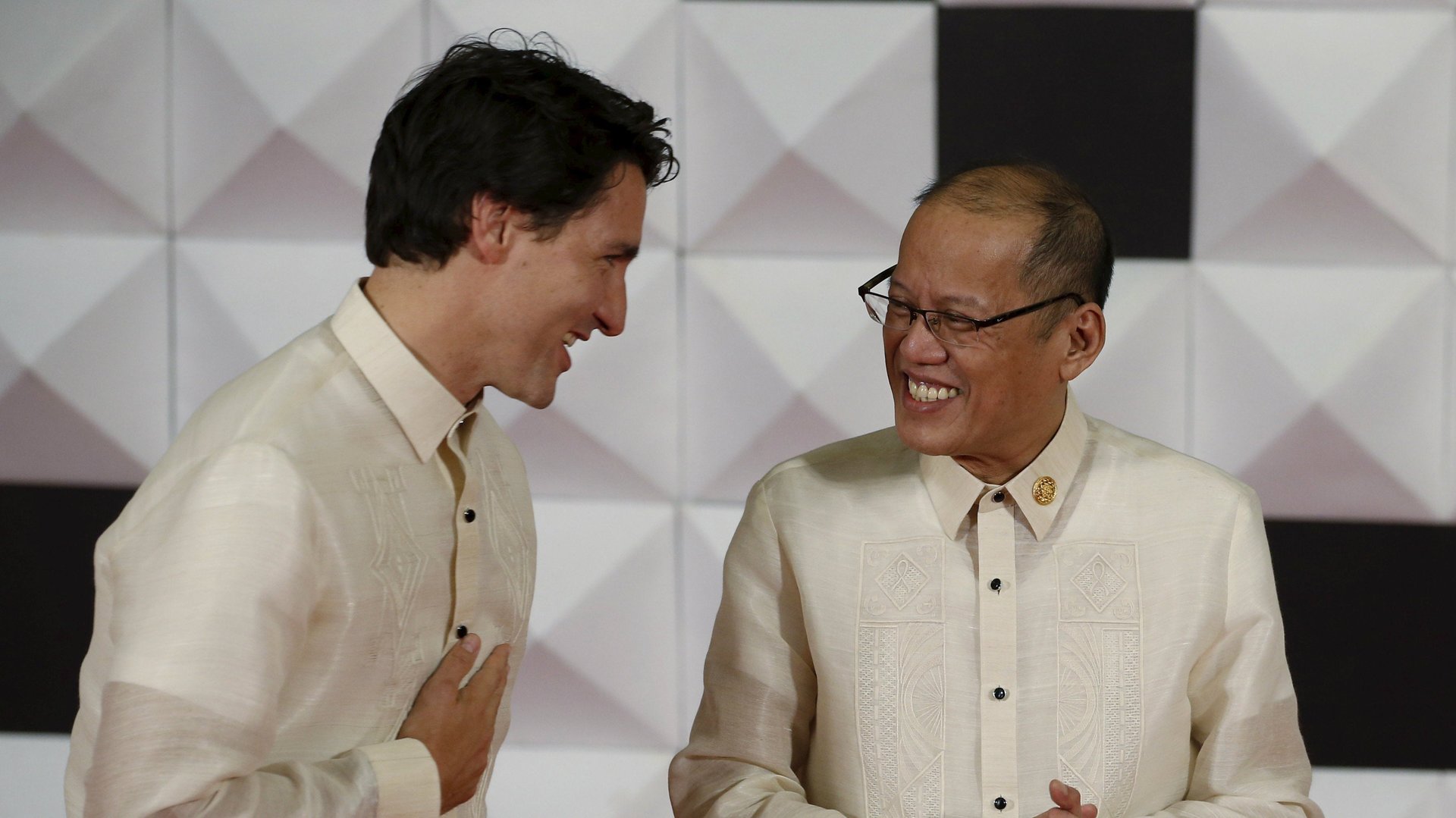The Philippines finally found a way to make APEC interesting
Asia Pacific Economic Cooperation meetings that bring regional and global leaders together once a year are often heavy on political rhetoric and diplomatic photo-ops, while attracting little attention from everyday citizens (they have been jokingly nicknamed “A Perfect Excuse for a Chat.”)


Asia Pacific Economic Cooperation meetings that bring regional and global leaders together once a year are often heavy on political rhetoric and diplomatic photo-ops, while attracting little attention from everyday citizens (they have been jokingly nicknamed “A Perfect Excuse for a Chat.”)
But this year’s summit has managed to become something of a social media phenomenon, thanks to a bawdy and politically incorrect Twitter hashtag that originated in the host country: #APEChottie…as in which global leader is better looking?
The hashtag gained popularity at around 1PM on November 17, right around the time world leaders were arriving in Manila. The term quickly began to trend on Twitter around 1PM on November 14, mostly by activity from the Philippines, where APEC was hosted.
At least in the eyes of Twitter users in the Philippines, Canadian Prime Minister Justin Trudeau and Mexican President Enrique Peña Nieto were this year’s top contenders for the “APEC hottie” tag:
But other users were quick to vouch for APEC’s other hot attendees.
Not surprisingly, the hashtag became fuel for more politically-minded Twitter users to drive attention to the sorts of serious issues APEC is meant to address. Mexicans critical of Peña were quick dismiss his good looks and discuss more substantive issues:
Meanwhile, Filipinos that actually cared about the APEC lamented the the hashtag’s popularity.
For the most part, the actual proceedings at APEC were predictable: Obama admonished China for its encroachment in the South China Sea, Xi Jinping made light jabs at the TPP, everyone wore a silly shirt, and all leaders expressed a commitment to fighting terrorism. That’s not enough to make a history-making diplomatic event. But thanks to #APEChottie, a few new inductees were drawn into following world affairs. Or, as this Harry Styles fan writes:
The event’s popularity online has a lot to do with the host country. The Philippines’ 44.2 million internet users have 40 million social media accounts (slideshow, pg. 9), according to wearesocial.sg, which measures social media usage around the world. Users in the country spend over six hours a day on the internet on average, more than any other country in Asia. That sort of volume can take a local hashtag to the top of Twitter’s trending page, turn a homegrown soap opera into the most-tweeted event in history, and add a little humor to an otherwise uneventful summit.